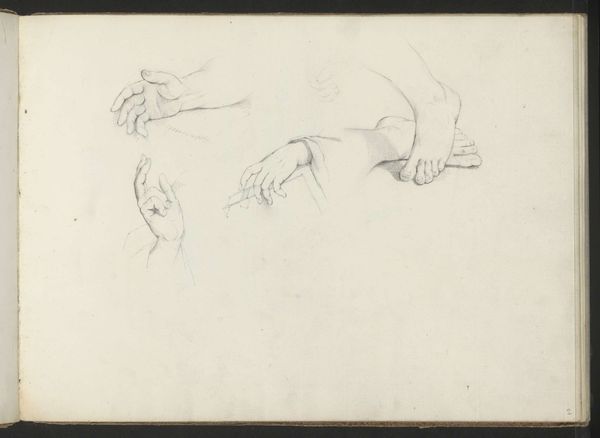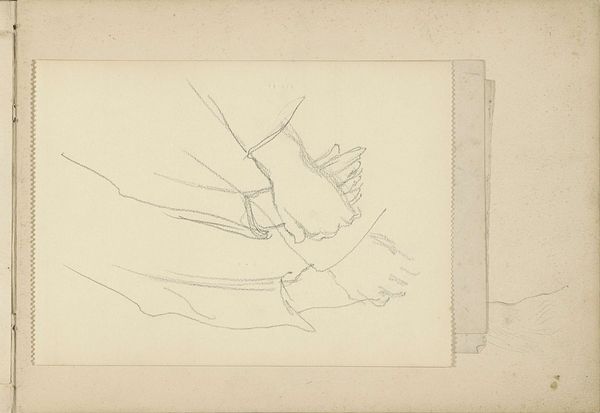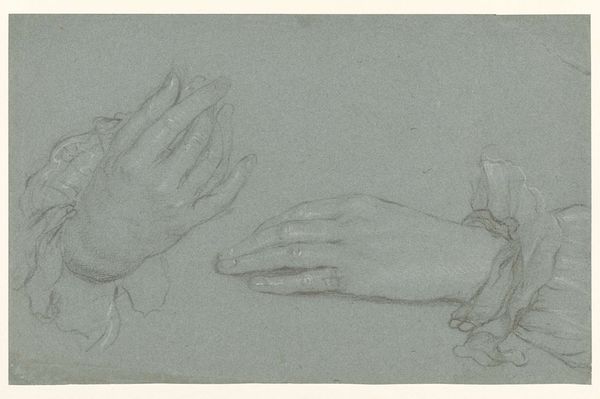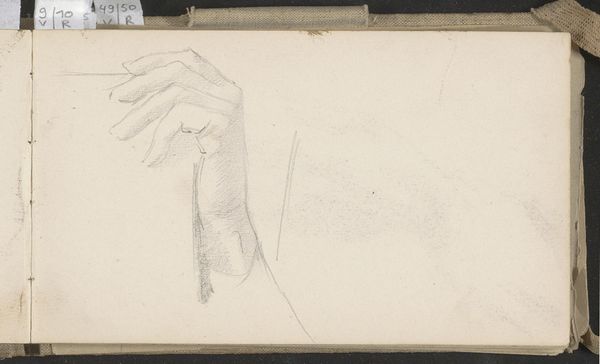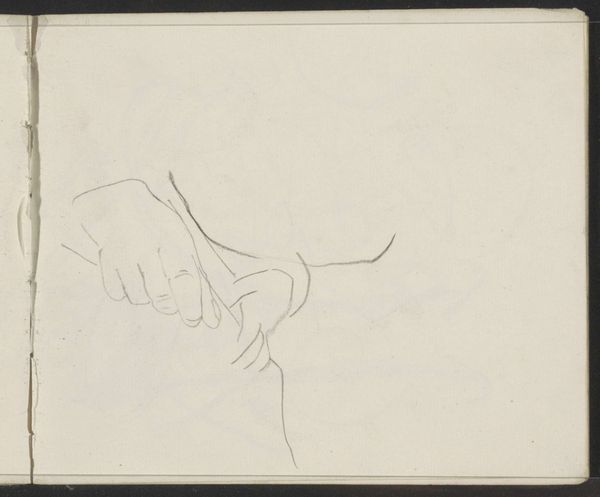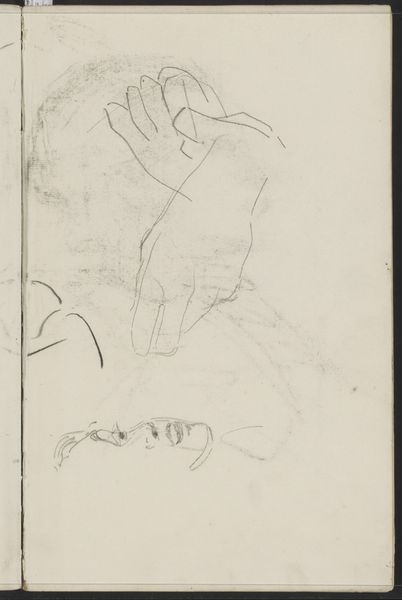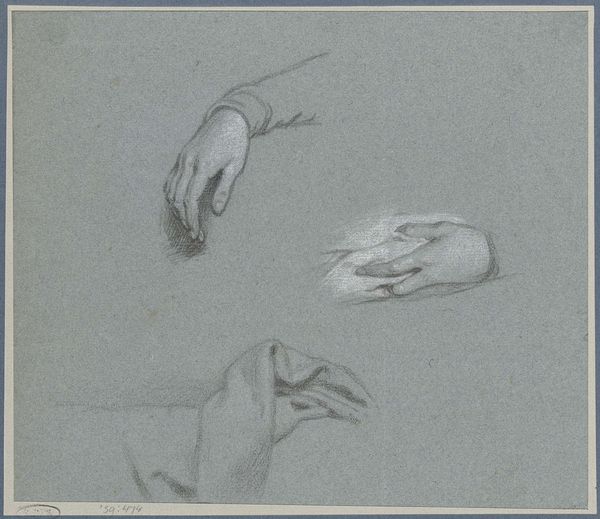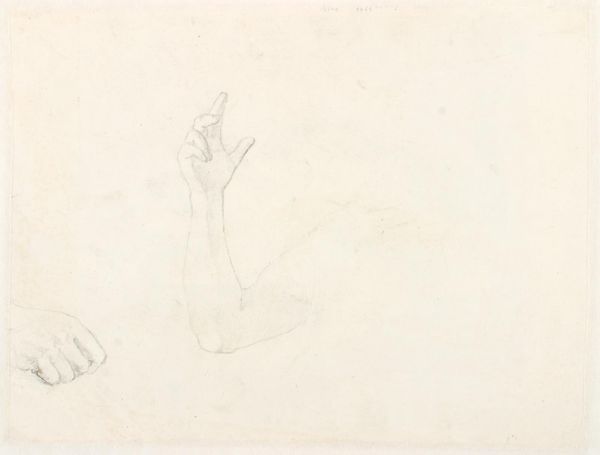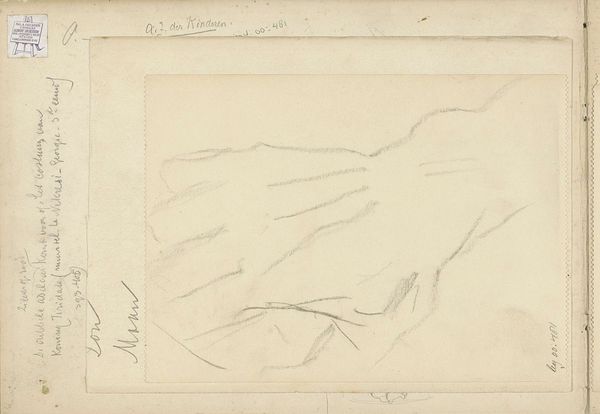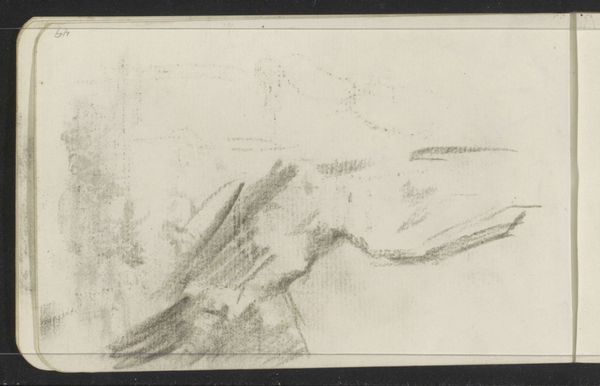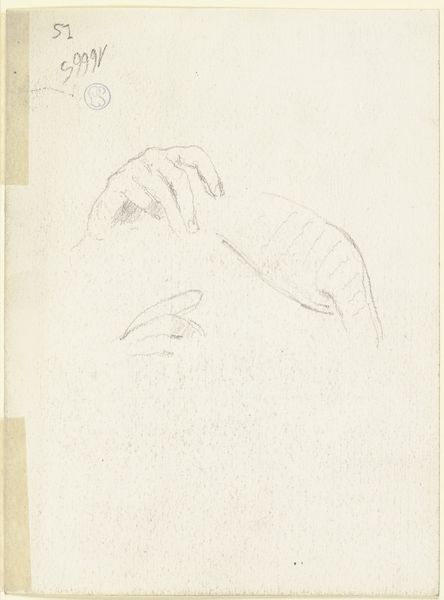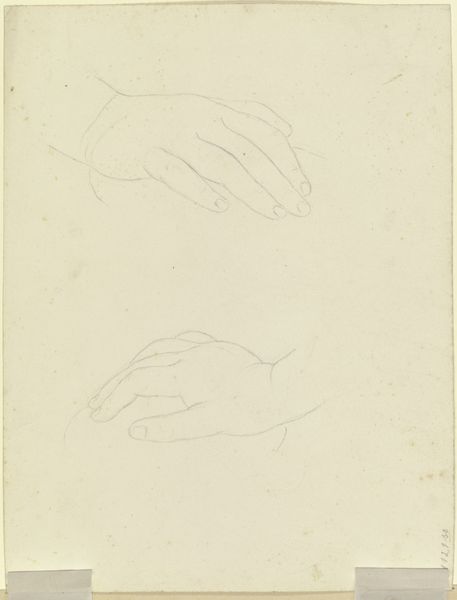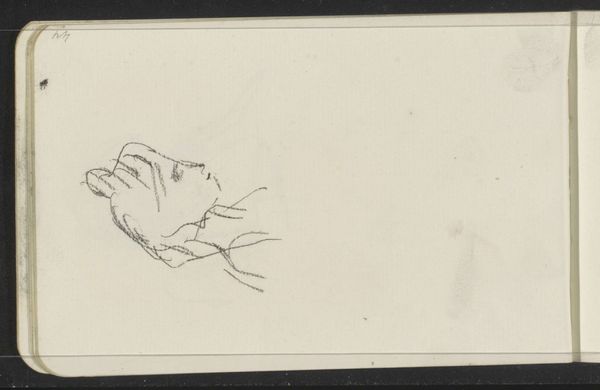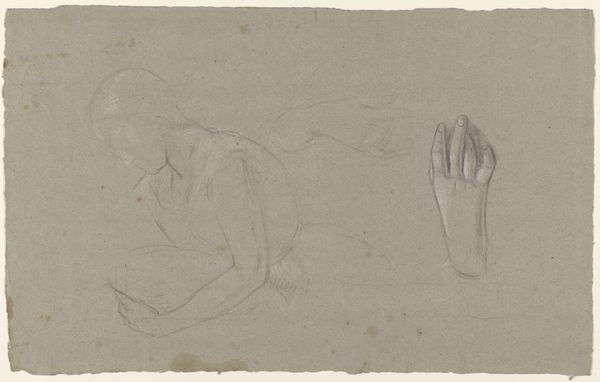
drawing, paper, pencil
#
drawing
#
aged paper
#
light pencil work
#
sketch book
#
incomplete sketchy
#
hand drawn type
#
landscape
#
figuration
#
paper
#
personal sketchbook
#
pen-ink sketch
#
pencil
#
ink colored
#
sketchbook drawing
#
sketchbook art
#
realism
Copyright: Rijks Museum: Open Domain
Curator: We're standing before "Grazende ezel," or "Grazing Donkey," a pencil drawing on paper by Jozef Israëls, dating sometime between 1834 and 1911. It’s currently held here at the Rijksmuseum. Editor: Aw, what a sweet, unassuming little sketch. It has that lovely quality of being both fleeting and eternal. It reminds me of finding a child's drawing tucked into a dusty old book. Curator: Indeed. Observe the aged quality of the paper and the economical use of line to convey form and gesture. It embodies Israëls' talent for capturing intimate moments with minimal strokes. Editor: Yes! Look how the artist implies texture and shadow with just the lightest touch. The donkey almost fades into the page, yet there’s a solidity to its form, isn't it strange? It's barely there, but completely present, as if the drawing emerged from the paper itself. Curator: Consider also the inherent value in a sketchbook work like this one. These drawings provide crucial insights into Israëls’ artistic process, revealing his initial concepts and techniques before his final, more polished paintings. The placement of the figure suggests he prioritized negative space just as much. Editor: It really invites the viewer to complete the scene in their own mind. You know, it is funny how just a few lines can suggest so much—a sun-drenched field, the donkey’s contented sigh, the whole pastoral fantasy unfolds from this delicate little suggestion. Curator: Precisely! And consider, too, the societal context in which Israëls worked. The burgeoning Realist movement... This image connects to broader themes. It makes me question, to what extent does such drawing prepare for the paintings of peasant life he's known for. Editor: Perhaps these quiet sketches are even more truthful than the grand finished works. They hold a certain unaffected innocence. You get the impression Israëls was genuinely touched by the ordinary beauty around him. I am, at least, when looking at this sketch. Curator: A beautiful sentiment that enriches our reading. I appreciate the opportunity to reflect upon such unpretentious work, with a figure depicted with such understated sensitivity. Editor: Yes, its artlessness almost hides its artistry. Thank you for guiding me today! I am certain our visitors will think the same after this conversation.
Comments
No comments
Be the first to comment and join the conversation on the ultimate creative platform.
